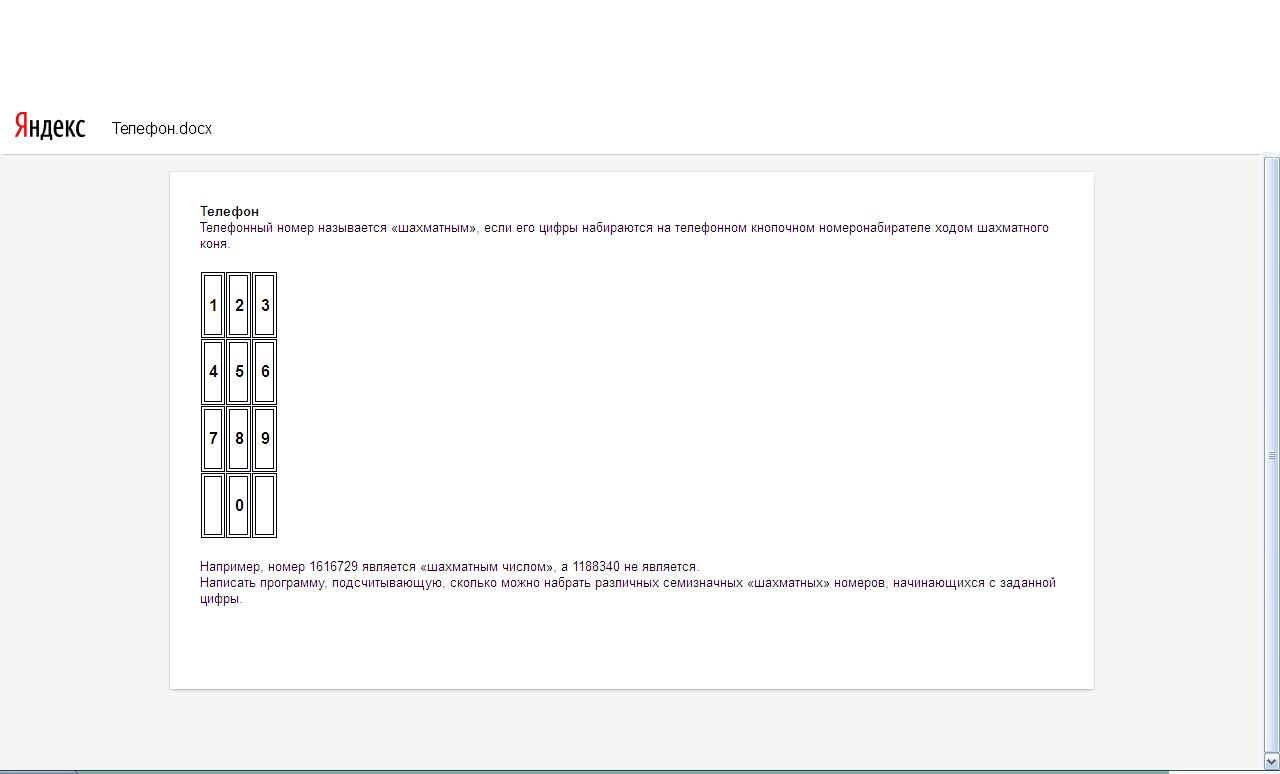Answer the question
In order to leave comments, you need to log in
How to calculate the combination of knight steps on a 4 by 3 matrix?

if it’s hard to see, then I
can’t calculate the chess numbers on a 4 by 3 matrix. I can’t save the place of the knight’s step and go further from this step. Do I need recursion? Then most likely a function is needed, I can not understand what arguments the function needs. If you uncomment the lines in the code, then it will show the correct valid steps at a time.
int x=0,y=0;
for(int i=0; i<4;i++) {
for(int j=0; j<3;j++) {
x=i;
y=j;
a[3][j] = 0;
cout<<a[i][j]<<endl;
if (x + t < 4 && y + o < 3) { c++; x=i+t; y=j+o; printf("a[%d][%d] - %d\n", x, y, a[x][y]); /*x=i;y=j;*/ }
if (x + t < 4 && y - o > -1) { c++; x=i+t; y=j-o; printf("a[%d][%d] - %d\n", x, y, a[x][y]); /*x=i;y=j;*/ }
if (x + o < 4 && y + t < 3) { c++; x=i+o; y=j+t; printf("a[%d][%d] - %d\n", x, y, a[x][y]); /*x=i;y=j;*/ }
if (x + o < 4 && y - t > -1) { c++; x=i+o; y=j-t; printf("a[%d][%d] - %d\n", x, y, a[x][y]); /*x=i;y=j;*/ }
if (x - t > -1 && y + o < 3) { c++; x=i-t; y=j+o; printf("a[%d][%d] - %d\n", x, y, a[x][y]); /*x=i;y=j;*/ }
if (x - o > -1 && y + t < 3) { c++; x=i-o; y=j+t; printf("a[%d][%d] - %d\n", x, y, a[x][y]); /*x=i;y=j;*/ }
if (x - t > -1 && y - o > -1) { c++; x=i-t; y=j-o; printf("a[%d][%d] - %d\n", x, y, a[x][y]); /*x=i;y=j;*/ }
if (x - o > -1 && y - t > -1) { c++; x=i-o; y=j-t; printf("a[%d][%d] - %d\n", x, y, a[x][y]); /*x=i;y=j;*/ }
}
}1
a[2][1] - 8
a[-2][1] - 0
2
a[2][2] - 9
a[1][-1] - 3
a[-1][3] - 1
3
a[2][1] - 8
a[-2][3] - 0
4
a[3][1] - 0
a[-1][1] - 2
5
a[3][2] - 0
a[-1][0] - 0
6
a[3][1] - 0
a[-1][3] - 1
7
a[3][2] - 0
a[0][-1] - 1
8
a[0][2] - 3
9
a[3][0] - 0
a[0][3] - 4
0
a[1][1] - 5
0
a[1][2] - 6
a[2][-1] - 6
0
a[1][1] - 5Answer the question
In order to leave comments, you need to log in
Such tasks are not considered a round robin, but rather recursively. for example, we have an entry point -
we first go through all possible transitions - we get the next 2-3 digits and in fact we have 2-3 more entry points, from which we count all the next possible transitions. And so we fail until we count to the seventh point. For example: 1 -6.8; 16 - 7.1: 18 - 1.3; 167 - 2.6 etc. until we get a line of 7. To optimize, we build a two-dimensional array, one dimension of which is the numbers on the phone, and the other is an array of possible transitions
Incorrect approach.
You need to create the correct dictionary and then go through all the combinations in the dictionary.
Your job is caching overkill.
For each button, we manually throw horse “neighbors” into the array - none for 5, three for 4 and 6, two for the rest.
Then get a 10x7 array (start buttonxlength) and recurse with one small addition: if it's cached, fetch it from the cache. Rules - f(b, 1) = 1, for the rest - sum{c=neighbor(b)} f(c, i−1).
You can also use dynamic programming, without recursion - all the same, the consumption of computing power is insignificant. First f(b, 2), then f(b, 3), and so on. up to 7.
The question is not related to react absolutely. To send data, you need to use a POST request. Of the libraries for xhr requests, I personally like isomorphic-fetch
PS You can at least use $.ajax (from the jquery library), at least native xhr ...
Didn't find what you were looking for?
Ask your questionAsk a Question
731 491 924 answers to any question